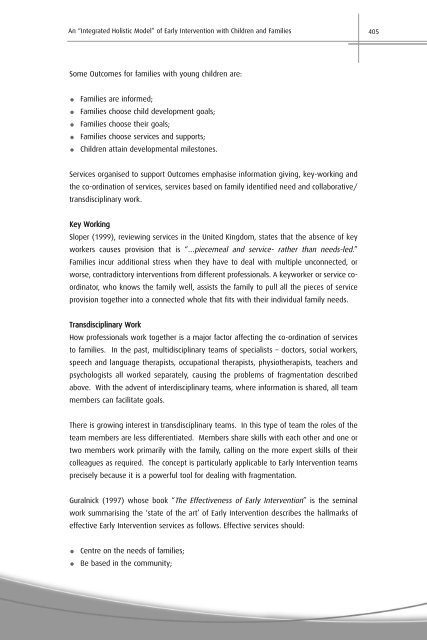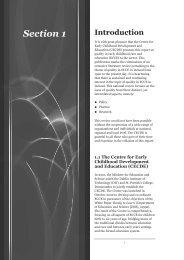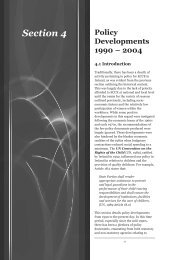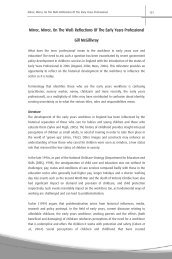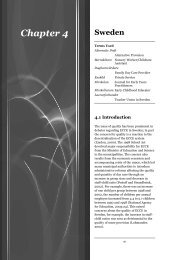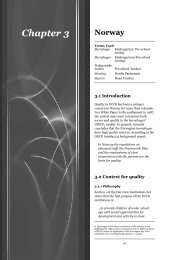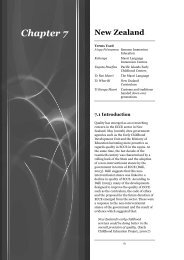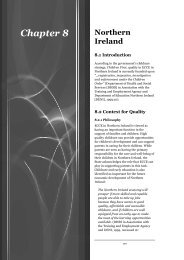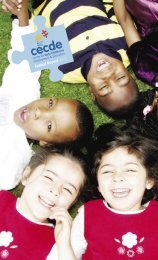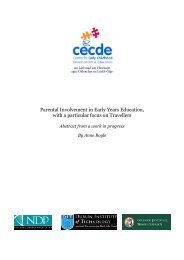Integrated Holistic Model - Centre for Early Childhood Development ...
Integrated Holistic Model - Centre for Early Childhood Development ...
Integrated Holistic Model - Centre for Early Childhood Development ...
You also want an ePaper? Increase the reach of your titles
YUMPU automatically turns print PDFs into web optimized ePapers that Google loves.
An “<strong>Integrated</strong> <strong>Holistic</strong> <strong>Model</strong>” of <strong>Early</strong> Intervention with Children and Families 405Some Outcomes <strong>for</strong> families with young children are:Families are in<strong>for</strong>med;Families choose child development goals;Families choose their goals;Families choose services and supports;Children attain developmental milestones.Services organised to support Outcomes emphasise in<strong>for</strong>mation giving, key-working andthe co-ordination of services, services based on family identified need and collaborative/transdisciplinary work.Key WorkingSloper (1999), reviewing services in the United Kingdom, states that the absence of keyworkers causes provision that is “…piecemeal and service- rather than needs-led.”Families incur additional stress when they have to deal with multiple unconnected, orworse, contradictory interventions from different professionals. A keyworker or service coordinator,who knows the family well, assists the family to pull all the pieces of serviceprovision together into a connected whole that fits with their individual family needs.Transdisciplinary WorkHow professionals work together is a major factor affecting the co-ordination of servicesto families. In the past, multidisciplinary teams of specialists – doctors, social workers,speech and language therapists, occupational therapists, physiotherapists, teachers andpsychologists all worked separately, causing the problems of fragmentation describedabove. With the advent of interdisciplinary teams, where in<strong>for</strong>mation is shared, all teammembers can facilitate goals.There is growing interest in transdisciplinary teams. In this type of team the roles of theteam members are less differentiated. Members share skills with each other and one ortwo members work primarily with the family, calling on the more expert skills of theircolleagues as required. The concept is particularly applicable to <strong>Early</strong> Intervention teamsprecisely because it is a powerful tool <strong>for</strong> dealing with fragmentation.Guralnick (1997) whose book “The Effectiveness of <strong>Early</strong> Intervention” is the seminalwork summarising the ‘state of the art’ of <strong>Early</strong> Intervention describes the hallmarks ofeffective <strong>Early</strong> Intervention services as follows. Effective services should:<strong>Centre</strong> on the needs of families;Be based in the community;


